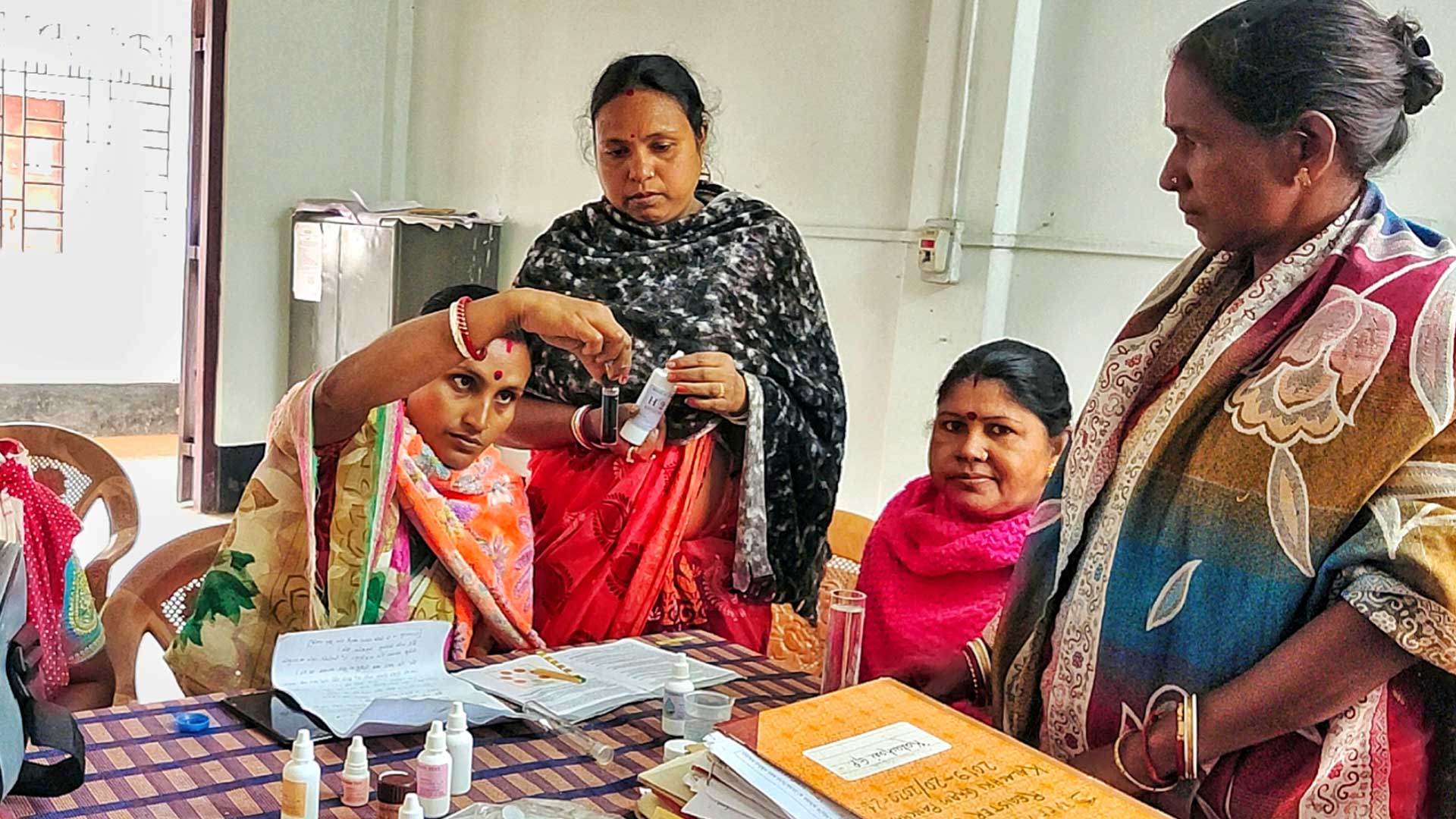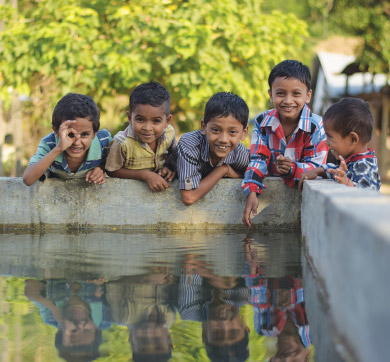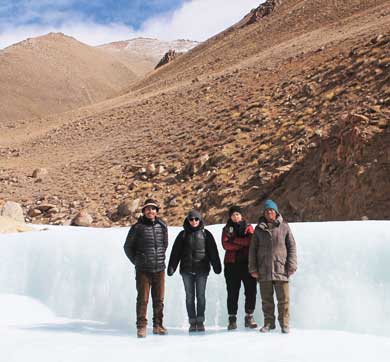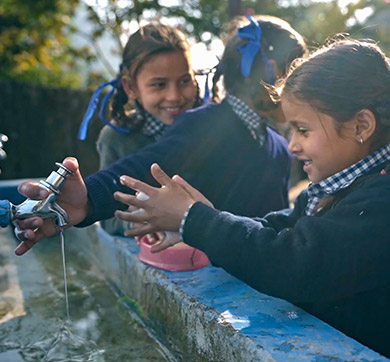July 2023 | 651 words | 2-minute read
Contaminated drinking water was a major public health hazard in Kalachari, a village of over 600 households in Tripura’s Dhalai district.
At the core of the issue was a host of chemical and biological contaminants, which had made water-borne illnesses like diarrhoea all too common within the community. However, for years, Kalachari’s residents – most of whom make their living from farming and keeping livestock – were largely unaware of the toxic elements lurking in their water.
Today, the residents are more cognisant of these threats and are able to successfully manage and mitigate them. The credit goes to the Centre for Microfinance & Livelihood (CML), an associate organisation of the Tata Trusts, which launched its community-based water quality management initiative in Kalachari in October 2021 to aid the implementation of the central government’s Jal Jeevan Mission (JJM). CML is a technical and knowledge partner for JJM. JJM has a strong focus on drinking water potability, and for this, communities need to be roped in to proactively manage their water needs. That’s been the focus of the Trusts’ efforts in the region.
Kalachari’s story is one of the many successful interventions of CML, which works across 60 villages in Tripura’s Dhalai district and 254 villages in Kamrup district, Assam.

With training and hand-holding support provided by CML, a five-woman ‘Drinking Water Quality Monitoring and Surveillance Committee’ from Kalachari today rigorously monitors water quality in the village’s wells and ponds using field test kits. The results of the tests are displayed in the local language on the walls of the gram panchayat building along with diagrams for easy understanding. The committee members also alert the concerned authorities to take remedial action if any contamination is found.
Having access to cleaner and safer drinking water has improved the health profile of the village. Dipali Kanda, an ASHA health worker based in Kalachari gram panchayat, is full of praise for the all-woman committee: “I have noticed a significant improvement in the quality of our water. Cases of diarrhoea and other waterborne illnesses have reduced, especially among the children. I am grateful for the hard work and dedication of these women.”
Local women are important partners for CML’s intervention because they are the ‘water managers’ of their households. In Kalachari too, CML identified five local women who were tasked with testing their village’s water supply and sensitising locals about water quality issues. These women then formed a village Drinking Water Quality Monitoring and Surveillance Committee and were trained by CML to test the water quality on nine parameters in line with guidelines like BIS standard 10500:2012. These parameters include pH level, turbidity, total hardness, iron content, fluoride, chloride, nitrate, free residual chlorine, and bacterial tests.


The committee came up with many unique ideas, including that of displaying water quality data on a board at the gram panchayat. The idea has worked wonders, as the residents of the panchayat are now aware of the status of the water they are consuming.
In addition to testing the water supply, the committee mobilises other Kalachari residents on safe water, sanitation and hygiene (WaSH) practices. CML also conducts meeting and training sessions with the community on the importance of water quality and monitoring and surveillance mechanisms. By building the locals’ capacity to understand and solve their water issues, the team has steered the village towards impactful and long-lasting change.
CML’s Kalachari intervention is a good example of key stakeholders like the government, nonprofit players and the community joining hands to create an enabling environment to address water quality. It has also showcased the vital role played by proactive and self-motivated citizens groups, especially those led by women, in galvanising communities to achieve better public health outcomes for their villages and regions.
Source: tatatrusts.org, April 28, 2023
































